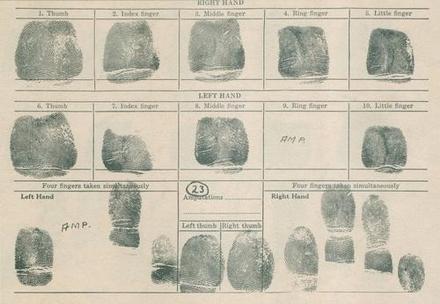TELEPHONES ANSWERED 24 HOURS A DAY
Recent Blog Posts
How A Parent’s Criminal Record Affects Their Children
 The United States of America is the number one country in the world for incarceration and arrest rates. For nearly four decades, the number of individuals in federal prisons, state prisons, and jail has skyrocketed, and today, nearly 2.3 million Americans are incarcerated. Many of today’s lawmakers, including the Governor of Illinois, have stated future goals of reducing prison populations in their states for a number of reasons. Arrest and incarceration can lead individuals to a lifetime of arrests, jail time, and fines, keeping themselves in poverty and costing individual states and ultimately American taxpayers a significant sum of money. Moving forward with a criminal record can be difficult, but having a criminal record can affect others in a defendant's too. A recent report from the Center for American Progress indicates that children with at least one parent with a criminal record face challenges.
How Are Children Affected?
The United States of America is the number one country in the world for incarceration and arrest rates. For nearly four decades, the number of individuals in federal prisons, state prisons, and jail has skyrocketed, and today, nearly 2.3 million Americans are incarcerated. Many of today’s lawmakers, including the Governor of Illinois, have stated future goals of reducing prison populations in their states for a number of reasons. Arrest and incarceration can lead individuals to a lifetime of arrests, jail time, and fines, keeping themselves in poverty and costing individual states and ultimately American taxpayers a significant sum of money. Moving forward with a criminal record can be difficult, but having a criminal record can affect others in a defendant's too. A recent report from the Center for American Progress indicates that children with at least one parent with a criminal record face challenges.
How Are Children Affected?
In Illinois, an estimated 300,000 children have at least one parent with a criminal record. Nationwide, nearly half of all United States children are affected in some way by a parent with a criminal record. Somewhere between 70 and 100 million Americans, possibly as many as one in every three adults, have some type of criminal record. They may simply have a misdemeanor on their record, and many have been arrested but never convicted. Regardless of the crime, and if the individual was punished or not, a mark on one’s criminal record can bring with it a lifetime of consequences, for both the individual and their family members.
Employee Theft Is Major Problem in America
 Retail theft is a serious problem across the globe. In the United States alone, retail theft and other losses, known collectively as shrinkage, account for $42 billion dollars in losses each year, according to an annual study known as the Global Retail Theft Barometer.
Retail theft is a serious problem across the globe. In the United States alone, retail theft and other losses, known collectively as shrinkage, account for $42 billion dollars in losses each year, according to an annual study known as the Global Retail Theft Barometer.
Why are American’s stealing from their employers? The report says that reasons include “Ineffective pre-employment screening, less employee supervision, and easy sale of stolen merchandise.”
New Law Protects Illinois Citizens from Synthetic Drugs
 Synthetic drugs are dangerous, and they are spreading quickly across the United States. The Centers for Disease Control recently reported that the number of calls to poison centers across the United States due to synthetic drugs escalated over 200 percent from 2014 to 2015. As these unpredictable and dangerous substances grow in popularity, Illinois lawmakers hope keep their constituents safe. Senate Bill 1129, passed just last year and effective as of January 1st, 2016, aims to curb synthetic drug use in the state of Illinois, keep Illinois residents out of harm's way.
What Are Synthetic Drugs?
Synthetic drugs, often referred to as designer drugs, are defined by Illinois law as any product containing a controlled substance that is not regulated by the FDA. New synthetic drugs are being developed constantly, and between 2009 and 2014, over 200 previously unidentified synthetic drugs were discovered in America alone. The problem is not exclusive to the United States either. Over the past ten years, over 650 different types of synthetic drugs spread across Europe. In America, the most frequently dealt with synthetic drugs are synthetic marijuana, otherwise known as Spice or K2, and synthetic cathinones, often referred to as bath salts.
Authorities across the United States face difficulty keeping synthetic drug creation, use, and sales under wraps, due to the fact that variations and new substances are created frequently. For users, synthetic drugs can be extremely dangerous. Synthetic marijuana substances may provide users with a similar high to marijuana, but can also bring about many side effects. “Nobody knows what is in these things and so therefore nobody can predict the effect on the person who uses them,” says one Illinois addiction treatment specialist. From January to May of 2015, fifteen people died due to synthetic marijuana use. Other symptoms, which depend on the drug, can include drowsiness, agitation, vomiting, rapid heartbeat, and worse. Advocates say that young Americans are at the most risk for using synthetic drugs, as they are often unaware of the side effects and believe them to be a smarter choice than actual drugs.
Illinois’ New Law
In an attempt to curb the growing problem, Illinois lawmakers passed Senate Bill 1129 that classifies synthetic drugs as “Schedule 1” controlled substances. In Illinois, “Schedule 1” substances are considered to have no medical use and are commonly addictive. Lawmakers say the new bill will also prevent drug manufacturers from creating any future synthetic substances.
Harsh Consequences for Synthetic Drugs
Possessing even a minimal amount of a synthetic drug can still lead to serious legal consequences. Those caught selling the drug may face prison time of up to seven years and fines upwards of $100,000. In addition to the legal consequences of “Schedule 1” drug possession or sales, a conviction of drug charges can be potentially life ruining, and can affect friends, family, your life, and your reputation.
Synthetic drugs are dangerous, and they are spreading quickly across the United States. The Centers for Disease Control recently reported that the number of calls to poison centers across the United States due to synthetic drugs escalated over 200 percent from 2014 to 2015. As these unpredictable and dangerous substances grow in popularity, Illinois lawmakers hope keep their constituents safe. Senate Bill 1129, passed just last year and effective as of January 1st, 2016, aims to curb synthetic drug use in the state of Illinois, keep Illinois residents out of harm's way.
What Are Synthetic Drugs?
Synthetic drugs, often referred to as designer drugs, are defined by Illinois law as any product containing a controlled substance that is not regulated by the FDA. New synthetic drugs are being developed constantly, and between 2009 and 2014, over 200 previously unidentified synthetic drugs were discovered in America alone. The problem is not exclusive to the United States either. Over the past ten years, over 650 different types of synthetic drugs spread across Europe. In America, the most frequently dealt with synthetic drugs are synthetic marijuana, otherwise known as Spice or K2, and synthetic cathinones, often referred to as bath salts.
Authorities across the United States face difficulty keeping synthetic drug creation, use, and sales under wraps, due to the fact that variations and new substances are created frequently. For users, synthetic drugs can be extremely dangerous. Synthetic marijuana substances may provide users with a similar high to marijuana, but can also bring about many side effects. “Nobody knows what is in these things and so therefore nobody can predict the effect on the person who uses them,” says one Illinois addiction treatment specialist. From January to May of 2015, fifteen people died due to synthetic marijuana use. Other symptoms, which depend on the drug, can include drowsiness, agitation, vomiting, rapid heartbeat, and worse. Advocates say that young Americans are at the most risk for using synthetic drugs, as they are often unaware of the side effects and believe them to be a smarter choice than actual drugs.
Illinois’ New Law
In an attempt to curb the growing problem, Illinois lawmakers passed Senate Bill 1129 that classifies synthetic drugs as “Schedule 1” controlled substances. In Illinois, “Schedule 1” substances are considered to have no medical use and are commonly addictive. Lawmakers say the new bill will also prevent drug manufacturers from creating any future synthetic substances.
Harsh Consequences for Synthetic Drugs
Possessing even a minimal amount of a synthetic drug can still lead to serious legal consequences. Those caught selling the drug may face prison time of up to seven years and fines upwards of $100,000. In addition to the legal consequences of “Schedule 1” drug possession or sales, a conviction of drug charges can be potentially life ruining, and can affect friends, family, your life, and your reputation.
Due to the serious consequences associated with synthetic drugs, if your charges involve distribution, possession, or drug trafficking, you need the help of an experienced Chicago area criminal defense attorney. At the Law Offices of Hal M. Garfinkel LLC, Chicago Criminal Defense Attorney, our qualified team has years of combined experience protecting clients from drug related charges. Call us today at 312-629-0669 to schedule a free consultation with a hard working, aggressive attorney today.
How Does Having a Criminal Record Affect Me?
 Crime certainly does not pay. Those accused of being involved in a crime face arrest - even if charges end up being dropped or dismissed - face lengthy, costly, and emotionally draining legal procedures. For those convicted of a crime, harsher consequences such as prison time or large fines should be expected. Even after serving the sentence of a conviction, if you have a criminal record, you will face challenges in your personal and professional life in the future. Here are a few things you need to know moving forward with a criminal record, and a few ways your tarnished record may affect you.
Challenges with Employment
Employers can, and often do, conduct criminal background checks before or after the hiring process. For those with a criminal record, this means landing a good job can be a serious struggle. If you have a criminal record or have had run-ins with the law, you should know that a criminal background check can reveal:
Crime certainly does not pay. Those accused of being involved in a crime face arrest - even if charges end up being dropped or dismissed - face lengthy, costly, and emotionally draining legal procedures. For those convicted of a crime, harsher consequences such as prison time or large fines should be expected. Even after serving the sentence of a conviction, if you have a criminal record, you will face challenges in your personal and professional life in the future. Here are a few things you need to know moving forward with a criminal record, and a few ways your tarnished record may affect you.
Challenges with Employment
Employers can, and often do, conduct criminal background checks before or after the hiring process. For those with a criminal record, this means landing a good job can be a serious struggle. If you have a criminal record or have had run-ins with the law, you should know that a criminal background check can reveal:
- Any misdemeanors or felonies on your record;
Underage Drinkers in Illinois Provided Immunity During Emergencies
 Put yourself in the shoes of a teenage or underage drinker at a party: You see somebody sick, passed out, at risk of alcohol poisoning, and in need of help, but what do you do? For any adult, the choice is clear—seek professional help immediately. For an underage drinker, however, the choice may not be as easy.
Put yourself in the shoes of a teenage or underage drinker at a party: You see somebody sick, passed out, at risk of alcohol poisoning, and in need of help, but what do you do? For any adult, the choice is clear—seek professional help immediately. For an underage drinker, however, the choice may not be as easy.
Illinois provides immunity for those that call for help in situations of drug overdose due to serious drugs like heroine. If the victim's life was at risk, whoever made the call to authorities would be protected from any serious criminal repercussions. In years past, however, the same immunity was not afforded to underage drinkers, leaving some state lawmakers worried. Stuck between calling for help for a potentially dying friend or facing the legal consequences of drinking underage, experts worried that underage drinkers would make the wrong choice. Now, thanks to a new law that went into effect on the first of this month, special immunity may be provided to underage drinkers that calls for help in life threatening situations.
What You Need to Know About Arrests in Illinois
 While most law-abiding citizens do not ever intend on being arrested, unfortunate situations do sometimes arise that lead to an arrest. Whether you participate in criminal activity or not, it is vital for you to understand the arrest process in Illinois, your rights, and how to handle yourself.
While most law-abiding citizens do not ever intend on being arrested, unfortunate situations do sometimes arise that lead to an arrest. Whether you participate in criminal activity or not, it is vital for you to understand the arrest process in Illinois, your rights, and how to handle yourself.
The state of Illinois has an arrest procedure that must be followed by any police officer or law enforcement agent, and failure to follow each step of this procedure could lead to your immediate release. Therefore, understanding your rights and how the process works is crucial. If you are an Illinois citizen, here is what you need to know about being arrested.
Who Can Arrest Me?
In Illinois, an arrest can be made by any law enforcement official with a warrant, and in certain circumstances, without a warrant. This includes sheriffs, police officers, and state troopers. In most cases, a warrant is used to make an arrest.
Interesting Ways Thieves Steal Identities
 When one considers identity theft, cases of lost debit cards, stolen online banking passwords, replicated fake credit cards, and the occasional stolen social security number may come to mind. As times change and as technology advances, however, modern day thieves are constantly discovering new methods of accessing personal information and stealing identities.
When one considers identity theft, cases of lost debit cards, stolen online banking passwords, replicated fake credit cards, and the occasional stolen social security number may come to mind. As times change and as technology advances, however, modern day thieves are constantly discovering new methods of accessing personal information and stealing identities.
In addition to the longstanding basic methods of identity theft, such as stealing mail or dumpster diving for wallets or personal financial information, which are already difficult to stop, American authorities are now forced to deal with even more creative and crafty methods thieves are employing to steal identities. The problem is so large that approximately 15 million Americans have their identities stolen and used fraudulently each year.
Identity theft in America alone accounts for over $50 billion in losses annually and it continues to be a major problem. The following includes several methods thieves have used to steal people’s identities, and steps individuals can take to protect themselves.
Fleeing and Eluding in Illinois
 In Illinois, fleeing and eluding is taken very seriously. Therefore, all drivers should be aware of the law and how to avoid committing the crime. But what qualifies as fleeing and eluding in Illinois, and what are the potential consequences drivers face if they are charged with the crime?
In Illinois, fleeing and eluding is taken very seriously. Therefore, all drivers should be aware of the law and how to avoid committing the crime. But what qualifies as fleeing and eluding in Illinois, and what are the potential consequences drivers face if they are charged with the crime?
What is Fleeing and Eluding?
In Illinois, fleeing and eluding could involve a high speed car chase, or simply a motorist failing to stop when directed to by an officer. Any driver that receives a signal from a police officer and neglects to pull over could be charged with fleeing and eluding. The state’s law says that the signal “may be by hand, voice, siren, red or blue light,” and that if the officer is in a vehicle, the vehicle will “display illuminated oscillating, rotating, or flashing blue lights which when used in conjunction with an audible horn or siren would indicate the vehicle to be an official police vehicle.” Additionally, the officer must be in proper uniform. If a driver fails to act once he or she has been official signaled by an officer, he or she will likely be charged with fleeing and eluding.
New 2016 Laws Aim to Keep Illinois Teens Out of Prison
 As the debate on the incredibly high number of inmates in America continues, many state officials across the country are pledging to reduce prison populations in their states within the coming years. Last year, Illinois Governor Bruce Rauner announced his goal of reducing the state’s large inmate population by 25 percent within the next 10 years. Now, thanks to a new package of laws that went into effect at the start of the new year, Illinois officials are doing even more to reduce the number of inmates in the state. The group of laws all aim to reduce the population of juveniles in the state prison system, many of whom continue to cycle in and out of prison for the rest of their lives.
As the debate on the incredibly high number of inmates in America continues, many state officials across the country are pledging to reduce prison populations in their states within the coming years. Last year, Illinois Governor Bruce Rauner announced his goal of reducing the state’s large inmate population by 25 percent within the next 10 years. Now, thanks to a new package of laws that went into effect at the start of the new year, Illinois officials are doing even more to reduce the number of inmates in the state. The group of laws all aim to reduce the population of juveniles in the state prison system, many of whom continue to cycle in and out of prison for the rest of their lives.
The first law changes how and when teenagers can be tried as adults. Previous Illinois law required that teens, ages 15 and older, be tried as adults when charged with one of five state determined serious crimes: armed robbery with a firearm, aggravated battery with a firearm, aggravated vehicular hijacking with a firearm, aggravated criminal sexual assault, and first-degree murder. Additionally, any teen tried once as an adult would automatically be tried as an adult for any future offenses, a practice often called “once an adult, always an adult.”
Overall Crime Down in Chicago Despite Increased Gun Violence
 Police departments across the United States faced a large amount of criticism in 2015. America’s trust in our police forces was tested time and time again, thanks to the year’s many viral videos depicting police brutality, high profile cases, and questionable police department secrecy. Fortunately for the Chicago Police Department, things may be looking up in 2016.
Police departments across the United States faced a large amount of criticism in 2015. America’s trust in our police forces was tested time and time again, thanks to the year’s many viral videos depicting police brutality, high profile cases, and questionable police department secrecy. Fortunately for the Chicago Police Department, things may be looking up in 2016.
A report recently released by the department shows that despite an increase in gun violence and gun related crime, overall crime in the city dropped for the fourth consecutive year. For a city that experienced the most homicides of any city in the United States in 2015, a drop in overall crime is very good news.
According to the department’s report, overall crime in the city dropped 6 percent from 2014. The report notes that robberies, assaults, burglaries, rapes, and thefts dropped significantly. Additionally, the report notes that violent crime fell substantially as well. In fact, the amount of violent crime that took place in Chicago in 2015 is the lowest the city has seen since the 1960’s. Since 2011, overall crime in Chicago has dropped 37 percent.




